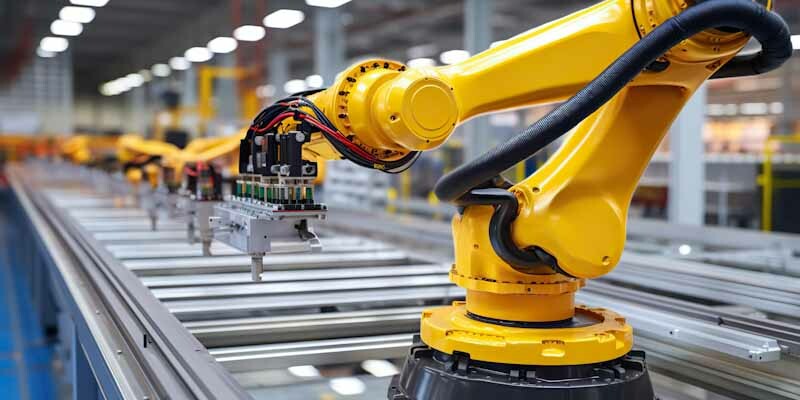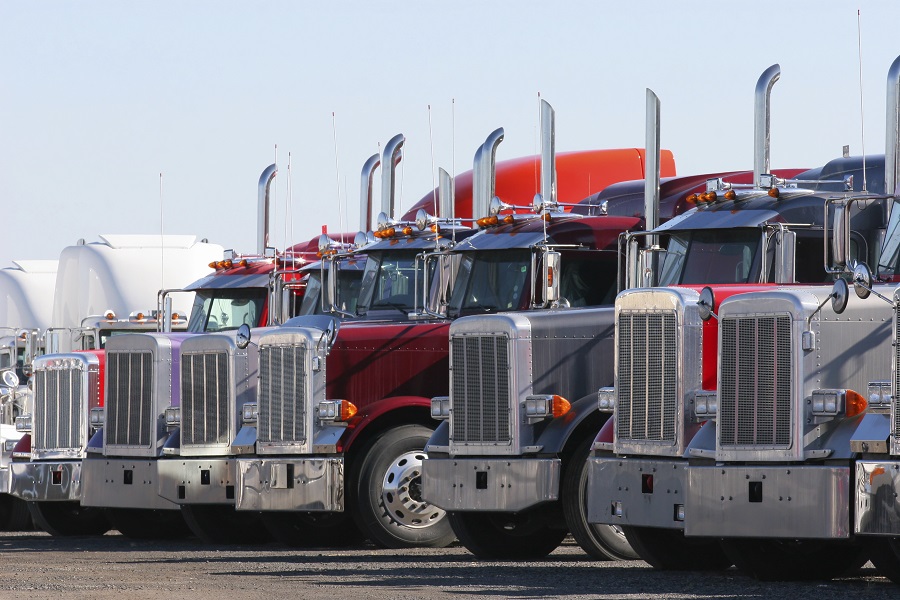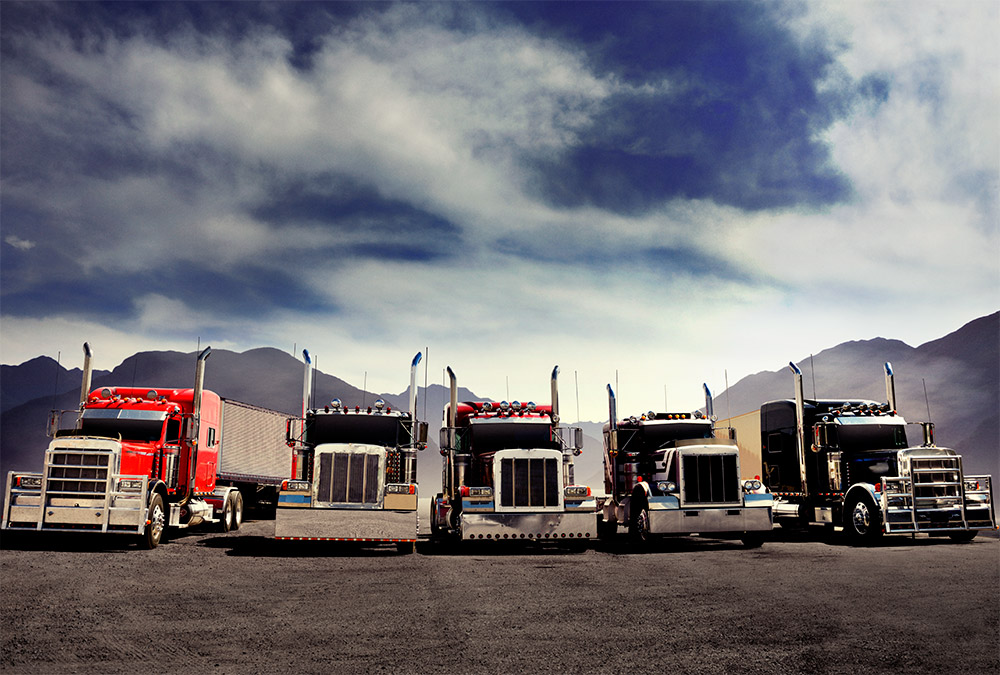The State of Owner Operator Trucking a conversation
Sep 29, 2025 in Trucking EventsMaria Santos, Transportation Reporter: Thanks for sitting down with me, Mohammed. I know you've been covering the trucking industry for what, fifteen years now?
Mohammed Al-Rashid, Logistics & Supply Chain Editor: Close to seventeen, actually. And I've got to say, I've never seen owner operators facing quite this combination of challenges all at once.
Maria: That's exactly what I wanted to dig into with you. I've been hearing that freight rates are still really depressed. What are you hearing from the owner operators you talk to?
Mohammed: It's honestly pretty grim. The spot market—where owner operators typically find their loads—is still sitting at rates that barely cover operating costs for a lot of drivers. I talked to a guy last week who's been running his own truck for twenty-three years, and he said he's seriously considering parking it and going to work for a fleet just to have steady income.
Maria: That's such a dramatic shift from 2021 and 2022, right? Weren't rates sky-high during the pandemic?
Mohammed: Absolutely. That's what makes this so painful. During those boom years, owner operators were making incredible money. Spot rates were sometimes double what they are now. A lot of people bought new or newer trucks, thinking the good times would continue. But the market has completely flipped. We've got too much capacity chasing too little freight, and owner operators are the ones feeling it most acutely because they don't have the diversified revenue streams that big carriers have.
Maria: Walk me through the math for someone who doesn't know trucking. What does it actually cost to run a truck these days?
Mohammed: So you're looking at fuel—which even though diesel has come down from the peaks, it's still one of the biggest line items. Then insurance, which is its own nightmare that we should get into. Maintenance, truck payments if you're financing, permits, tolls, ELD subscriptions, factoring fees if you're using a factoring company to get paid faster... The list goes on. A lot of owner operators I talk to say they need at least $1.80 to $2.00 per mile just to break even, and many loads on the spot market right now are coming in under that.
Maria: You mentioned insurance being a nightmare. That keeps coming up in my reporting too. What's going on there?
Mohammed: Oh, insurance is the thing that might actually break owner operators before rates do. Premiums have absolutely exploded—I'm talking 30, 40, sometimes 50 percent increases in a single year. And that's for drivers with clean records.
Maria: Why such massive increases?
Mohammed: It comes down to these so-called "nuclear verdicts"—jury awards in truck accident cases that are hitting $10 million, $50 million, sometimes over $100 million. Insurers are terrified. Even if a truck driver isn't at fault, the mere fact that a commercial truck was involved in a serious accident can lead to astronomical jury awards. So insurance companies are either raising rates through the roof, dropping trucking clients entirely, or becoming incredibly selective about who they'll cover.
Maria: So what happens to an owner operator who can't afford insurance or can't get coverage?
Mohammed: They're done. You can't operate legally without it. I've heard from multiple owner operators who've had to sell their trucks because they literally couldn't find affordable insurance. One guy told me his quote went from $14,000 a year to $26,000, and he hadn't had an accident in fifteen years. He sold his truck and is now driving for someone else.
Maria: That's devastating. Let's shift gears a bit—what about technology? Are owner operators embracing digital load boards and freight matching apps?
Mohammed: It's complicated. On one hand, yes, these platforms have become essential tools. Most owner operators are using apps like DAT, Truckstop, Uber Freight, or other digital load boards to find freight. The transparency is better than the old days of calling brokers blindly.
Maria: But there's a downside?
Mohammed: The downside is that transparency works both ways. Brokers can see exactly how desperate carriers are, and there's so much capacity on these platforms that it drives rates down. It becomes a race to the bottom. Plus, a lot of owner operators feel like the algorithms favor larger carriers or that the platforms take too big a cut.
Maria: Are they worried about automation? I know autonomous trucks are a hot topic.
Mohammed: You know, it's interesting. Five years ago, there was almost panic about it. Now, I'd say there's more of a resigned awareness. Most owner operators I talk to don't think fully autonomous trucks are taking over tomorrow, but they know it's coming eventually. The timeline has stretched out longer than the tech companies predicted, but the trajectory is still there. Some of the older drivers figure they'll retire before it really impacts them. The younger ones are more concerned.
Maria: What about regulations? How much does that factor into their daily frustrations?
Mohammed: Constantly. The Electronic Logging Device mandate is still a sore point for a lot of owner operators, even though it's been years since it went into effect. They feel like it eliminated the flexibility that made owner operation attractive in the first place. You know, being able to wait out traffic, or push through when you're close to delivery, or manage your time how you see fit.
Maria: But wasn't the ELD mandate about safety? Preventing drivers from fudging their hours?
Mohammed: That was the stated goal, and yes, there were definitely drivers who abused paper logs. But owner operators will tell you that the hours-of-service rules themselves are the problem—they don't account for real-world situations like sitting at a warehouse for six hours waiting to unload, which counts against your clock even though you're not driving. So now you've got strict enforcement of rules that many drivers feel are fundamentally flawed.
Maria: Fair point. What else is on the regulatory front?
Mohammed: Emissions standards are becoming a big deal. The EPA has been pushing for cleaner trucks, which is great for the environment, but it means older trucks—which many owner operators rely on because they're paid off—might become prohibitively expensive to operate or even banned in certain states. California, for instance, has been really aggressive on this. If you've got a 2010 truck that's been paid off and runs great, but new regulations force you to upgrade to a 2020 or newer model, you're talking about a six-figure investment that many owner operators simply can't make.
Maria: Are there other new regulations coming down the pipeline that have owner operators concerned?
Mohammed: Oh yeah, there's quite a bit percolating. The Drug and Alcohol Clearinghouse requirements have added another layer of compliance costs and administrative burden. Then there's talk of mandatory speed limiters on all commercial trucks, which has owner operators divided—some think it's a safety issue, others see it as government overreach that will make them less competitive. But the big one everyone's watching is the potential changes to independent contractor classification rules. The Department of Labor has been looking at how to define who qualifies as an independent contractor versus an employee, and if those rules tighten up, it could fundamentally change how owner operators work with brokers and shippers. Some owner operators worry they could be forced into employee relationships, which would kill the whole point of being independent. There's also increased scrutiny on truck parking, with some municipalities cracking down on where trucks can park overnight, which creates both safety and logistical headaches. And don't even get me started on the patchwork of state-by-state regulations—California has its AB5 law affecting independent contractors, New York has specific insurance requirements, Illinois has different fuel tax rules. Owner operators running interstate have to be compliance experts across dozens of different regulatory regimes, and one mistake can result in fines that wipe out a month's profit.
Maria: It sounds like the regulatory burden alone is almost a full-time job.
Mohammed: It really is. I've talked to owner operators who say they spend almost as much time on compliance and paperwork as they do actually driving. And every new regulation, even if well-intentioned, adds cost. Software subscriptions, consulting fees, additional insurance, more time spent on administrative tasks instead of revenue-generating miles. Death by a thousand cuts, as one driver put it to me.
Maria: So we've covered rates, insurance, technology, and regulations. Is there anything else that's dominating the conversation among owner operators right now?
Mohammed: Fuel is always in the conversation. Even though diesel prices have moderated, owner operators are constantly strategizing about where to fuel, which apps give the best discounts, how to negotiate fuel surcharges with brokers. A few cents per gallon difference really adds up when you're running thousands of miles.
Maria: I imagine the fuel surcharge conversation gets contentious with brokers.
Mohammed: Oh, absolutely. Owner operators feel like brokers use fuel surcharges as another way to squeeze margins. The surcharge doesn't always reflect the actual cost of fuel, or it's calculated in a way that benefits the broker more than the driver. It's one of those constant friction points in the relationship.
Maria: Speaking of brokers, how would you characterize that relationship overall right now?
Mohammed: Tense. There's always been some tension between carriers and brokers, but in a tight rate environment, it gets worse. Owner operators feel like brokers are taking too large a cut while offering loads at unsustainably low rates. Brokers, for their part, say they're just reflecting what shippers are willing to pay in a soft freight market. It's a classic squeeze in the middle situation.
Maria: Here's what I'm struggling to understand: if rates are terrible and owner operators are going out of business, doesn't that reduce capacity? And wouldn't that eventually push rates back up?
Mohammed: That's exactly the paradox that everyone in the industry is talking about. Yes, capacity is leaving the market. Small fleets and owner operators have been going out of business at a pretty steady clip. In theory, when freight demand picks back up, there should be a capacity crunch that drives rates up. The question is timing—can enough owner operators survive long enough to see that recovery? And will the barriers to re-entry be too high if people sell their trucks and want to come back later?
Maria: What do you mean by barriers to re-entry?
Mohammed: Well, if you sell your truck during tough times, and then three years later the market rebounds, can you get back in? You'd need to buy another truck—prices might be higher. You'd need insurance—which we've established is crazy expensive. You'd need to rebuild relationships with brokers and shippers. It's not impossible, but it's not easy either.
Maria: So what's your sense of the future of owner operation? Is it a dying model?
Mohammed: You know, I've been asked that question a lot lately, and I honestly don't have a clear answer. On one hand, owner operation has survived every previous downturn. These are some of the most resilient, independent entrepreneurs in the country. They figure things out.
Maria: But on the other hand?
Mohammed: On the other hand, this feels different. The combination of compressed rates, soaring insurance costs, strict regulations, and looming automation... it's a lot. I think we're going to see continued consolidation. More owner operators either going out of business or leasing onto larger fleets to get their buying power and insurance rates. The truly independent owner operator might become rarer.
Maria: That's pretty sobering.
Mohammed: It is. But here's what strikes me: despite everything, there's still this incredible sense of community among owner operators. They're on Facebook groups, YouTube channels, CB radio, warning each other about bad brokers, recommending good loads, offering advice. That solidarity might be what keeps at least some portion of them going.
Maria: Do you think policymakers understand what's happening?
Mohammed: Not really. Trucking tends to be invisible until something goes wrong—until there's a shortage and goods don't move. Most politicians don't think about the economics of owner operation until it's too late. There's been some attention to the nuclear verdict issue, with talk of tort reform, but nothing concrete yet. And the rate issue isn't really something the government can fix—that's market forces.
Maria: What should people who aren't in the industry understand about owner operators right now?
Mohammed: I think people should understand that when they order something online and it shows up two days later, there's a good chance it was on a truck driven by someone who's working incredibly hard for very thin margins—maybe even losing money on that load. Owner operators are the ultimate believers in the American dream of owning your own business, but right now that dream is being stress-tested like never before. The decisions they make in the next year or two will shape what the trucking industry looks like for the next decade.
Maria: Mohammed, this has been really enlightening. Thanks for taking the time.
Mohammed: Anytime, Maria. If you want to really understand it, though, I'd suggest spending a day riding with an owner operator. The view from the cab tells you more than any statistics can.
Maria: That's actually a great idea. I might just do that for my next piece.
Mohammed: If you do, bring snacks and prepare for some brutally honest conversation. Owner operators don't hold back.



